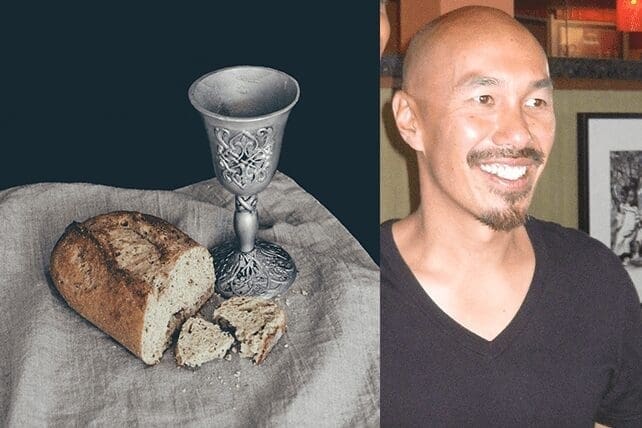On a recent episode of his “Theology in the Raw” podcast, Preston Sprinkle shares a recording of Francis Chan speaking at April’s “Exiles in Babylon” conference. In his message, Chan urges church leaders to keep the Lord’s Supper at the center of worship, saying a shift toward emphasizing sermons has harmed Christian unity.
The podcast also includes a Q&A session between Chan and Sprinkle afterward. During that, Chan describes how he now looks more closely to the early Church for answers on theological issues. And after years of viewing the meal as only a symbol, he now leans toward the Eastern Orthodox view on communion.
Francis Chan: ‘The Body & Blood Were Always Central’
For the first 1,500 years after Jesus’ earthly ministry, notes Chan, “the body and blood were always central” when Christians gathered for worship. They were in awe of the meal and were excited to participate as one body.
But 500 years ago, Ulrich Zwingli “moved communion off to the side,” Chan says, putting a wooden pulpit in the center of worship instead. When other pastors followed suit, the unifying elements of communion faded. Instead, worshipers began comparing pastors and their theologies, “fighting about who’s right.”
Chan describes the first 1,000 years of Christendom by saying, “There was one church!” And for the first 1,500 years, he adds, “Everyone believed in the real presence of Christ in the bread and the cup.” Although that presence was a mystery, it was accepted as truth.
In today’s church, meanwhile, Christians divide ourselves by saying “we can’t break bread with certain people.” Chan asks, “Do you really believe that could be God’s will, that we have like 20 different tables?”
Eucharist Is More Than Remembering, Writes Michael Bird
In a September 28th blog about Chan’s message, Australian priest Michael Bird agrees that “the mere memorialism and marginalization of the Lord’s Supper to elevate the role of preaching” is unfortunate and incorrect. Bird shares an anecdote he heard about a chapel’s ironic layout. Directly above the communion table is a stained-glass window showing the women visiting Jesus’ empty tomb on Easter. Inscribed below are the angel’s words, “He is not here!”
That “sums up how many people feel about the Lord’s Supper,” writes Bird. “Jesus is remembered, but he is not present!” That view is deficient, he says, because “Jesus’ presence is the whole point!”

